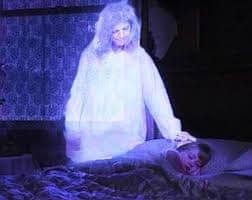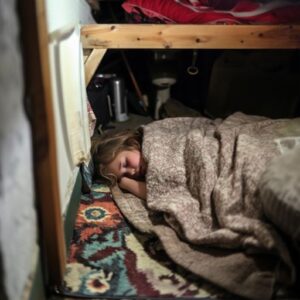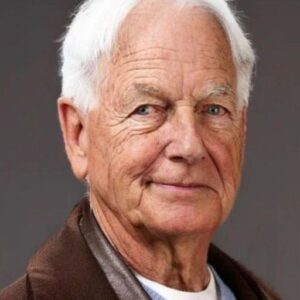Dorothy, who never had children, took a DNA genetic test on a whim,hoping to find distant relatives. To her shock, she was informed she had a daughter, though she had never been pregnant. Dorothy Weaver didn’t feel lonely until she lost her husband at 57. Dorothy, who never had children, took a DNA genetic test on a whim, hoping to find distant relatives. To her shock, she was informed she had a daughter, though she had never been pregnant. Dorothy Weaver didn’t feel lonely until she lost her husband at 57. Both she and her husband, Thomas, were human rights lawyers deeply engrossed in their work. They met at a college protest and fell in love instantly. Over their 35 years together, they occasionally considered starting a family, but their dedication to their causes always took precedence. Time passed faster than Dorothy could have imagined, and one day, having a baby was no longer an option — but adoption was. Dorothy and Tom began the adoption process just before he passed away. Dorothy was in her office, strategizing to save a teenager on death row, when the call came. She answered, feeling irritated. “This had better be good!” she snapped. “Mrs. Weaver?” The quiet voice on the line made her hair stand on end. “It’s about your husband, Mr. Thomas Weaver…” Dorothy dropped the phone, barely registering the sympathetic voice and explanations. Tom was gone. His brave heart had failed. “I’m alone,” she whispered. “I’m all alone.”
While Tom had loving parents, Dorothy was moved from one foster home to another until she aged out of the system. Her intelligence and determination got her into college and law school. There’s always something within us that guides us to our destined place. Now, arriving home, there was no Tom to share a glass of wine over takeout pasta, no one to debate their cases with, no one in the cold, empty bed. The profound sense of incomplete she felt her whole life vanished when she met Tom. Now, that terrible loneliness consumed her life. Dorothy increased her office hours, taking on more cases, until one day she collapsed during a passionate closing argument for a young homeless mother who had killed a social worker. Dorothy, the woman of steel, was no more. After a long convalescence, she took stock of her life. At 60, she was too young to retire but not strong enough to practice law as before. What could she do? Teach? She reached out to the prestigious law school where she and Tom had studied and secured an offer to lecture a few hours a week. It wasn’t much, but it was something — she’d be active and surrounded by bright young minds. Teaching helped, but she ended her days alone, watching late-night TV — bad late-night TV. Later, she would attribute what happened to a late-night talk show. At 2 am, a large black woman with a massive wig was interviewing a thin white woman. Their mouths moved soundlessly until Dorothy turned up the volume. “…my mother,” said the thin woman, wiping her eyes. “I asked her, but she didn’t know…” The hostess turned incredulous eyes towards the camera. “Honey, your mama didn’t know who her baby-daddy was?” The thin woman blushed. “My mother had some wild years, Mavis, but she’s found the Lord now!” “Amen!” cried Mavis. “But how did she not know?” “It was those Woodstock days,” said the woman. “People were indulging in everything.” “But you found your father,” Mavis interrupted. “How did you do it?” “Well, my son sent my DNA and my husband’s as a Christmas gift, and I was furious… Some mysteries belong to the Lord…” “Yes, yes,” Mavis interrupted. “But how did you find your father?” “They sent us this report, and there it was, clear as day: Sturgis Lee Kersey. And seven more names of siblings. I was shocked…” At that moment, Mavis gestured, and Dorothy saw a stylish girl bring in thin woman’s relatives. “This is where I get off!” Dorothy exclaimed and switched off the TV. But that woman’s face stayed in her mind. Dorothy got up, went to the bathroom, turned on the light, and looked in the mirror. “I want to know where I come from, and why she didn’t love me.” The next day, she decided to explore her roots. After significant research, she chose a reliable company, ordered a DNA test, took the cheek swab, and sent it off. A month later, she received the results. One part detailed her heritage, but another part of the report stood out: ‘49.96% match’ with a photo of a young woman named Michelle Simpson, 33, identified as her daughter. “My daughter?” she whispered. “I don’t have a daughter!” Dorothy sent an angry email, accusing the company of incompetence and threatening legal action. The company responded via telephone. “Mrs. Weaver,” the smooth-voiced man said. “Our team reviewed your case. They suggest you might have an identical twin.” “An identical twin?” Dorothy gasped. “But… Oh my God! I was raised in the foster system… I had no idea…” Dorothy sent Michelle Simpson a message and got an excited reply along with a phone number and a suggestion to meet. She agreed, and two days later, walked into a restaurant towards a table where a slim redhead sat. The woman tried to stand but sank back into her chair, pale. “You…” she whispered. “You look just like mom. Same hairstyle, same type of clothes… you even walk like her!” “Michelle?” Dorothy asked. “Your mom, was she in foster care too?” Michelle shook her curls. “No! Mom was adopted at two. She had no memories of her mother and struggled to adapt. My grandparents discouraged her from finding her biological family.” “Your mother…” Dorothy said. “She’s my twin. Does she know?” Michelle nodded. “Yes, she’s scared though. She didn’t want to explore this. She didn’t want to know why her mother abandoned her.” “Abandoned us,” Dorothy said. “She abandoned us, and we were separated.” Michelle took a photo, typed a quick message, and sent it. “Sit!” said Michelle. “Tell me about yourself!” “I’m a lawyer,” Dorothy said. “And a widow. I have no children, I have no one, which is why I sent in my DNA…” But Michelle was gazing over Dorothy’s shoulder, smiling brightly. “Mom,” she called. “Come meet Dorothy.” Dorothy got up on shaky legs and turned to face herself! “Dorothy?” her other self whispered, “I’m Susan.” Dorothy didn’t hesitate. She stretched out her arms and hugged Susan. She realized she was crying, but it was okay because Susan was crying too, and so was Michelle. “I always felt something was missing,” Susan sobbed. “Me too!” said Dorothy. “Like only half my heart was working…” “Now we’re together!” said Susan. They turned smiling faces towards Michelle. Even their hair and outfits were similar. Susan, a family law practitioner, explained she had been married to Michelle’s father for over 15 years. After the relationship ended, she and teenage Michelle moved to Denver — where Dorothy lived! Michelle married and had four children. “So you’re a grandmother!” Dorothy exclaimed. “We kept postponing having children, thinking we had time… Now it’s too late, and I’m alone.” “No, you aren’t!” said Susan fiercely. “You have me, Michelle, her husband, and kids… You’ll never be alone again!” Dorothy ended up with a large family, including many grand-nieces and nephews who resembled her. As the sisters got to know each other, they found eerie parallels and identical tastes. Since both were alone, they moved in together, and Dorothy shamelessly spoiled Susan’s grandchildren. What can we learn from this story? It’s never too late to reach out and find loved ones. Dorothy never imagined she had an identical twin and found a big family through her. There’s always something inside us guiding us to our destiny. A mystical connection led Susan to Dorothy.





